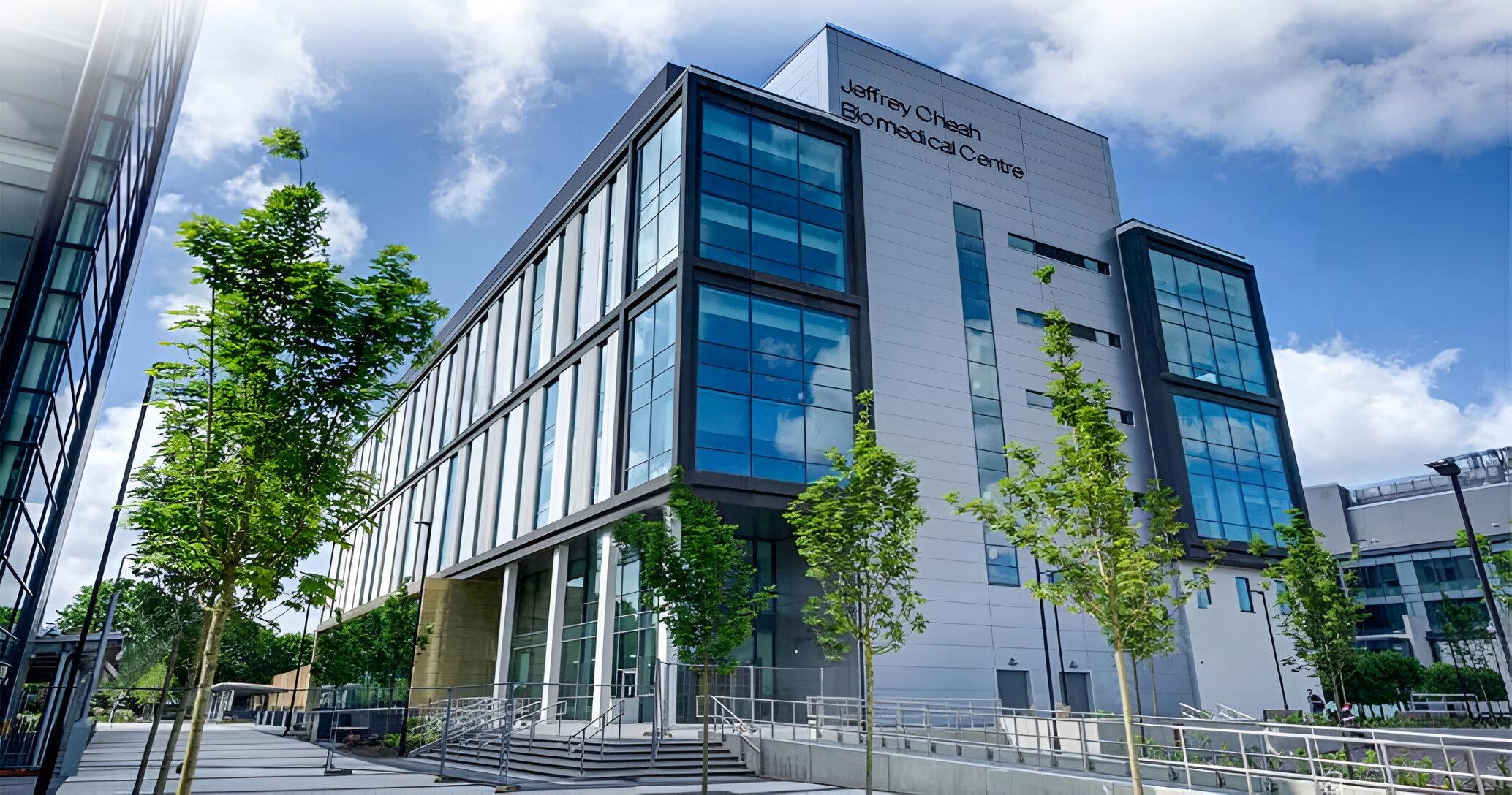
Our footprint
CITIID was established in 2019 and includes around 300 scientists within ~25 research groups, with laboratory space over three sites on the Cambridge Biomedical campus:
- The Jeffrey Cheah Biomedical Centre, our main base within two floors of the centre also incorporates the largest academic biosecure level 3 containment facility in the UK.
- The Molecular Immunity Unit at the MRC Laboratory of Molecular Biology.
- Level 5 Addenbrooke’s Hospital, including the Tissue Immunity Laboratory, enabling rapid human sample processing.
Our ethos
Collaborative research that addresses important scientific questions with translational relevance, conducted in a positive environment that is outward looking.
CITIID scientists are studying human immunity across scale, from molecules and pathways within cells, to the whole patient in experimental medicine studies, generating insights that will help to change clinical outcomes.
Professor Menna Clatworthy, CITIID Director
The problems we are tackling
The immune system is responsible for protecting the body from infections. However, abnormal or dysregulated immune responses can lead to autoimmune diseases and the clinical burden of many infectious diseases.
➤ Immunity and autoimmune diseases
Autoimmune diseases (also known as immune-mediated diseases), including inflammatory bowel disease (IBD), systemic lupus erythematosus (SLE) or vasculitis, currently affect ~10% of the UK population and their incidence is increasing.
These diseases are incurable, affect people of all ages, and are associated with a huge personal and socioeconomic costs. They are treated with drugs that suppress the immune system, most of which are non-specific, for example, corticosteroids, and incur significant side-effects for patients.
➤ Infectious diseases and the microbiome
Despite the development of anti-microbials and vaccines, infectious diseases continue to be a major cause of mortality world-wide, with COVID-19, influenza, HIV and tuberculosis together responsible for more than 10 million deaths annually. These pathogens have developed clever methods of avoiding the immune system and are continually evolving to resist the effects of antimicrobials. Vaccination represents a major strategy to prevent infection upon subsequent exposure and requires an understanding of the interplay between pathogen and host.
Microbes are not always damaging to the host, in fact all human house a complex microbiome, with more than 10 trillion microbes in the gut alone. There is increasing evidence that the microbiome influences immune responses and susceptibility to immune modulating treatments beyond the gut.
Our focus
At CITIID we are working in immune-mediated diseases to understand:
- genetic contributions to susceptibility
- how different immune cells in blood and tissue contribute to disease
- how microbes interact with host to avoid detection and resist the immune system
We seek to use this information to accelerate diagnosis and treatment stratification, identify new therapeutic targets, and unveil the mechanisms by which the microbiome influences systemic immunity.
We have established collaborations with industry and with international research partners, and also actively engage and involve our local community, both patients and the public.


